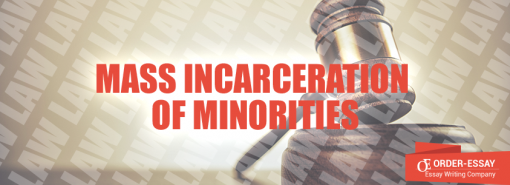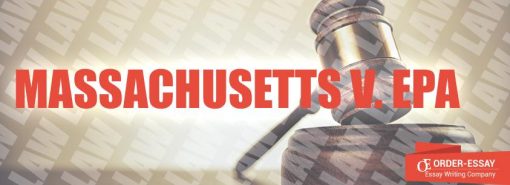
The Constitution has absolute supremacy in the criminal legislation of the USA, not the criminal law by itself since the legislative bodies at all levels cannot pass the laws that violate the Constitution. Criminal procedures reserve some powers of the police authorities that may have direct influence on the citizens. Controversial issues of such procedures include the interpretation of the constitutional amendments, the exclusions to the Fourth Amendment, namely, reasonable causes for detention, search, suspicion, etc. Criminal procedures should predominantly rely on the exclusion, as it exempts from conflict situations.
Need custom written paper? We'll write an essay from scratch according to your instructions!
Plagiarism and AI Free
Price from only 10.99$/page
Call Now
Start Chat
Order Now
The 4th Amendment
While the Fourth Amendment was initially directed against the abuses of federal power, the adoption of it was spread to the states’ governments. Although this particular correction did not clearly confirm the right of citizens regarding privacy, it is believed that the Amendment protects this right, since it is one of the most important rights of the person referred to in the Bill of Rights (Clancy 34).
The protection of citizens’ privacy from possible interference by the authorities is important in itself, without even considering the role that it plays in defense of freedom of conscience, thoughts, expressions, and property rights. In the absence of this right, governments have the ability to infringe the rights of other citizens. Nowadays, this is especially true due to availability of advanced means of surveillance or eavesdropping, and computer technologies. If the citizens are under constant supervision of the authorities, they will not be able to express the views that are different from the government permission on the political structure of the state.
The Fourth Amendment prohibits the law enforcement agencies to conduct searches and arrest citizens without sufficient reason or evidence that the suspect citizen has really violated the law. Yet, the authors of the Amendment decided not to provide the police authorities with the right to determine what constitutes a sufficient basis for a search or seizure. The police should announce the reasons for the search or arrest to the judge who issues the warrant to the police officers.
However, under certain circumstances, the Fourth Amendment permits conducting searches or arrests without warrants. At the same time, the amendment protects the rights of citizens, limiting the powers of the judge in issuing orders demanding that the order contains detailed description of the place to be searched, as well as the seized people or things. The judge may not allow the law enforcement agencies in the warrant to conduct searches, wherever they deem it necessary.
Government actions are limited by the provisions of the fourth Amendment ensuring the rights and requirements of ordinary people regarding privacy. Arbitrary governmental intrusions are the objects of prohibition in advance of freedom of people. Therefore, they are protected from corresponding warrantless seizures and searches in the majority of cases when governmental actions are illegal due to the infringement of privacy requirements.
Exceptions to the Warrant Requirement
In some cases, the Fourth Amendment enables to conduct the search without a warrant. These cases provide the police authorities and officers with possibility to execute exceptions to this constitutional requirement.
Plain View
The order which corresponds to the Fourth Constitutional Amendment may not be required in case the evidence is available to the public (Szypszak 209). This means that the evidence has been obtained in the situation when any license is not required by common sense (Kastellec and Lax 407). Therefore, such evidence even – if formally received without legal grounds – can be entered in the criminal process for improving the efficiency of the fight against the crime and detection of crimes in modern USA.
When the evidence is located in a prominent and accessible place for the police officers who were not against their protocol, such inspection or view is included in the exclusion of the Fourth Amendment on the legality of the search and the warrant. This exception has legitimate and equal value.
Administrative search
Individual public bodies are allowed to detain and search people in the circumstances that otherwise would violate the Fourth Amendment, if they do it for administrative reasons that differ from those participating in the investigation of crimes. Furthermore, they are inherent to the inspections carried out by airport security. If the evidence of a crime is found as a result of administrative detention and search, they can be used for criminal prosecution.
The cases when the authorities do not require a warrant for an administrative inspection include verification of the enterprises in the areas of high legal regulation, in particular, the production of alcoholic beverages, weapons, mining companies, the enterprises of recycling, nuclear energy, etc. These exemptions from the requirements of an order are not clearly imposed on the ordinary homeowners, the activists of organizations, or community groups.
Reasonable Suspicion
Reasonable suspicion is the legitimate standard in the police and court practice that is based on specific facts indicating probable fault and accusation of a person. These facts confirm less than simple probable cause, although reasonable suspicion is not a complete evidence for imprisonment (“Fourth Amendment”).
Reasonable suspicion is used in the cases where a police officer does not need to be firmly convinced of the availability of weapon in the detainee (Ferguson and Bernache 1587). What is more, reasonable suspicion may be invoked by the police officer as a result of evaluation of the factors such as personal experience, suspicious behavior of people, nervousness, agitation, stealthy steps, attempts to avoid the police, the time and place of action similar to the wanted person, etc.
When the police have reasonable suspicion in addition to the plan view, they have a right to frisk this person for the object of suspicion (drug, weapon, cold steel, etc.). This legal standard obliged police to search/seize/detain a person in the case of appearance of evident facts lead to reasonable suspicion.
This particular suspicion may be caused by the fact that if any average person were performing the role of a policeman, this person would believe that both the detention and search of people are necessary to ensure their own safety and the safety of others. At the same time, the police did not require absolute certainty that the suspect is armed, because potential danger and reasonable suspicions are enough for search.



Probable Cause
Probable cause is the requirement in the criminal law practice that attests the adequate reason and the right of police to perform the procedures of arresting, searching, and property seizing that refer to alleged crime commitment (Arcila 12). This requirement belongs also to the Fourth Amendment and is the exclusion for the provision of the people with their rights for secure life.
Police have a right to act according to a warrant or several exclusions of it, but the police officers are obliged to perform their duties based on reasonable causes. They can arrest with no issued warrant provided they are guided by a probable cause. The same should be in the prosecution referred to the charge directed at a defendant. It should be noted that the warrant obtaining requires a police officer to sign particular affidavit stating certain facts why the probable cause appears to search or arrest some person. In case of the warrantless arrests, police should be also driven by the probable cause after the facts of a crime.
Get a Price Quote
To sum up, the criminal practice should follow the Constitution, its Fourth Amendment, and its exclusions that attest a number of cases when the involvement of police is justified. These exclusions include plan view, administrative search, etc. Police behavior should be based on probable cause and reasonable suspicion regulated by the Fourth Amendment.








